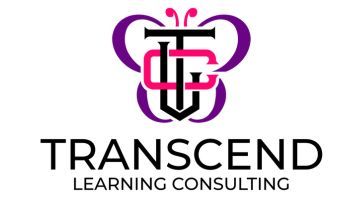8 Questions New Coaches Should Be Able to Answer Before Coaching Begins
Aug 21, 2025
Total reading time: 3-4 mins
The first month of the school year sets the tone, not just for teaching and learning, but for coaching as well. This is the time to clarify your role, align expectations, connect with teachers, and gather data that will inform your strategic approach.
What separates coaches who thrive from those who merely survive? early efforts to connect, clarify, and strategize.
Impact-building coaches don’t leave their year to chance. They use these first weeks to gain clarity about their role, cultivate trust, make meaningful connections, and collect insights that will guide intentional actions.
Here are 8 essential questions every new instructional coach should answer before official coaching begins
1. Do I clearly understand my role and expectations?
Knowing exactly what is expected allows you to focus your energy on high-impact activities rather than guessing at priorities. Role clarity reduces anxiety and builds confidence, ensuring your decisions align with school goals.
2. Which student learning goals should my coaching support?
Coaching is most effective when it directly impacts student outcomes. Understanding the school and district instructional priorities ensures your efforts are purposeful and aligned. This focus helps teachers see the “why” behind their coaching and professional learning work with you.
3. What does coaching look like in this school/district?
Understanding the coaching culture is essential for your success. Ask yourself: how does leadership view coaching?, is it collaborative, evaluative, supportive, or admin-directed?, how receptive or resistant are teachers? Knowing the context allows you to design adult learning experiences strategically, increasing your chances of meaningful impact.
4. Who will I be coaching, and what do I know about them?
Adult learners engage differently depending on their experience, readiness, and past experiences. Taking the time to listen, learn, and connect with the teachers you’ll support will make your coaching more effective. Trying to coach someone you don’t understand often leads to frustration and resistance. Building teacher profiles early helps personalize your approach and support.
5. How will I intentionally connect with teachers before coaching begins?
Trust-based relationships are essential for impactful coaching. Plan proactive, human-first interactions to cultivate trust, establish credibility, and create collaborative coaching partnerships. Small gestures of connection early on can pay big dividends throughout the year.
6. What are the current instructional priorities and professional learning initiatives?
Aligning your coaching with existing school initiatives ensures your work is additive, not duplicative.Your work with teachers should be supporting your school leadership's instructional priorities and goals, not working against them. This alignment strengthens your impact and reinforces a cohesive culture for professional learning and growth.
7. Who is in my support network, and what resources are available?
Coaching can feel very isolating. Identify mentors, colleagues, and resources you can rely on for guidance, strategies, or emotional support. Knowing who to contact in advance ensures you can overcome challenges efficiently when they arise and continue to grow in your practice.
8. How will I recognize and measure success throughout the year?
Impact-building coaching should be aligned to student outcomes, but progress may not always be immediately visible. Establish short-term and long-term indicators of success to monitor progress, celebrate wins, adjust strategies, and maintain momentum.
3 High-Leverage Pro Tips to Get Started
- Meet with school leadership early: schedule a session to clarify your role, priorities, and expectations for the year.
- Get to know the teachers you will support: take time to get to know the teachers you will be coaching so you can understand their context, needs, and aspirations. Build teacher profiles to personalize and target your support to meet their needs.
- Map your support system: identify mentors, colleagues, and resources in your school and district. Know who to contact for guidance, strategies, and support before challenges arise.
Stay connected!
Join our Beyond Coaching newsletter to receive valuable insights, pro tips, and actionable strategies to sharpen your personal leadership skills and coaching practice.
We hate SPAM. We will never sell your information, for any reason.


